
4 Teas for 4 Organs: Liver, Stomach, Heart & Brain
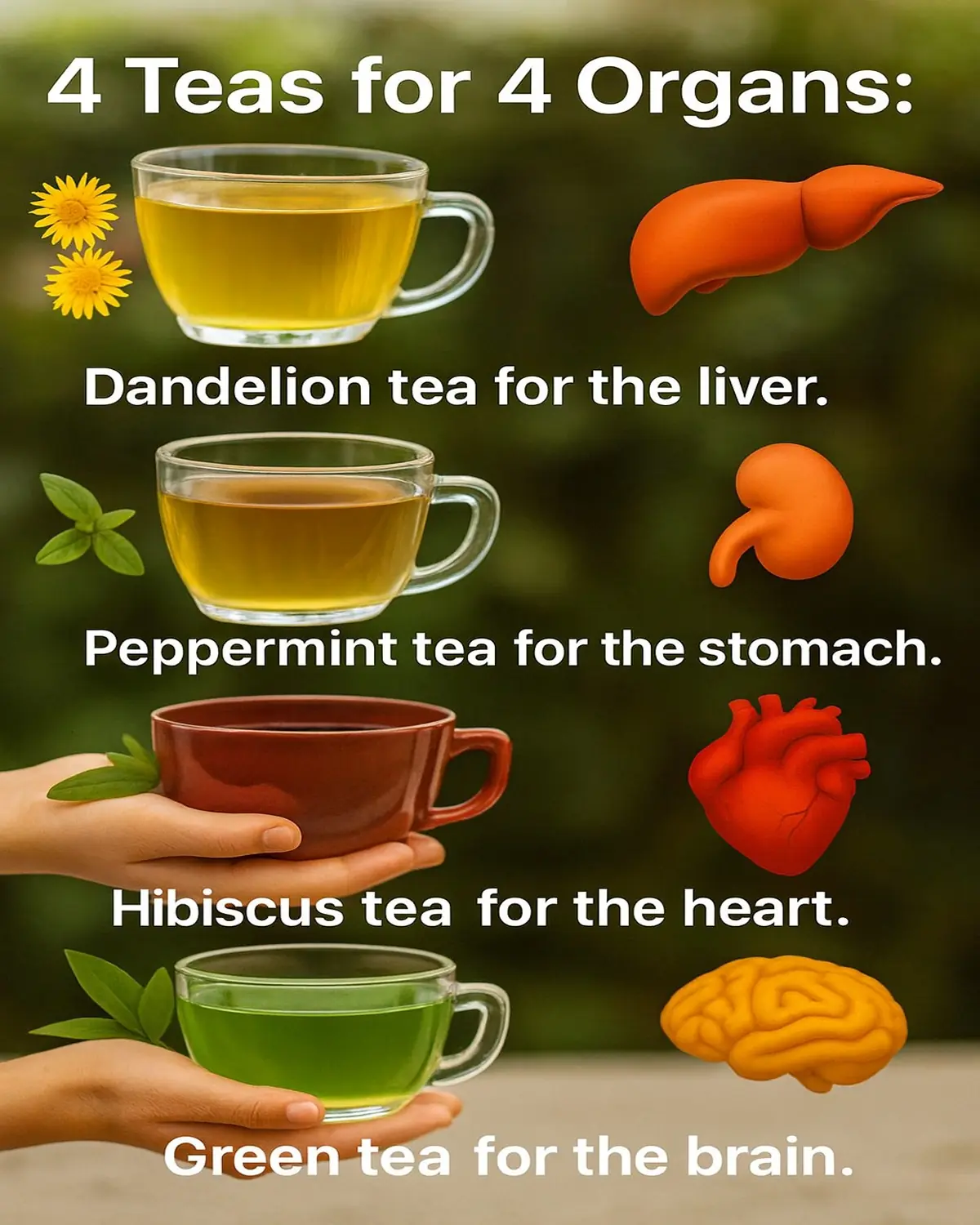
Tea is more than just a soothing drink—it has been used for centuries as part of daily wellness rituals in cultures across the globe. Beyond comfort and hydration, certain herbal teas have been linked to specific benefits for key organs in the body. While no tea is a miracle cure, many are rich in natural compounds that may support the liver, stomach, heart, and brain when enjoyed regularly as part of a healthy lifestyle.

Recent surveys show that nearly 70% of adults worldwide drink tea daily, making it one of the most accessible natural wellness practices. In this guide, we’ll uncover four powerful teas—one for each organ—and explain their traditional uses, modern insights, and practical ways you can integrate them into your routine.
Tea #1: Dandelion Root Tea for Liver Support
The liver is your body’s main detox organ, working tirelessly to filter toxins, process nutrients, and regulate metabolism. A strong tradition in both Western herbalism and Traditional Chinese Medicine highlights dandelion root tea as a natural ally for liver function.
Why it’s valued:
- Contains antioxidants that may help reduce oxidative stress on the liver.
- Traditionally used to support bile flow, which aids digestion.
- Believed to promote gentle cleansing.
How to use:
Steep 1–2 teaspoons of dried dandelion root in hot water for 10 minutes. Drink once daily, preferably before meals.
Lifestyle pairing: Combine with a balanced diet rich in vegetables and reduced alcohol intake to give your liver extra care.

Tea #2: Ginger Tea for Stomach Comfort
The stomach plays a central role in digestion, and discomfort here can affect your entire day. Ginger tea has long been praised in Ayurveda, Chinese medicine, and folk traditions worldwide for its stomach-soothing properties.
Why it’s valued:
- Contains gingerol, which may ease nausea and bloating.
- Supports smoother digestion and stomach comfort.
- Helps warm the body, often used after heavy meals.
How to use:
Slice fresh ginger (about 1–2 inches), simmer in water for 5–7 minutes, and sip warm. Add lemon or honey for flavor.
Lifestyle pairing: Use ginger tea after meals and practice mindful eating—chewing slowly and avoiding overeating for better stomach health.
Tea #3: Hawthorn Berry Tea for Heart Health
The heart is at the center of life, pumping blood and oxygen throughout the body. Hawthorn berry tea has a long history in European herbal medicine as a tonic for heart and circulation.

Why it’s valued:
- Rich in flavonoids and antioxidants studied for cardiovascular support.
- Traditionally used to help maintain blood pressure and vessel elasticity.
- Supports relaxation, which indirectly benefits heart health.
How to use:
Steep 1 teaspoon of dried hawthorn berries in boiling water for 10–15 minutes. Drink 2–3 times per week.
Lifestyle pairing: Combine hawthorn tea with daily exercise, reduced salt intake, and stress management for a holistic heart-friendly lifestyle.
Tea #4: Green Tea for Brain Vitality
The brain thrives on oxygen, nutrients, and stimulation. Among the world’s most studied teas, green tea has gained attention for its potential effects on brain function and focus.
Why it’s valued:
- Contains L-theanine, an amino acid linked to relaxation without drowsiness.
- Rich in catechins, which may protect cells from oxidative stress.
- Traditionally used for mental clarity and alertness in Japanese and Chinese cultures.
How to use:
Steep 1 teaspoon of green tea leaves in hot (not boiling) water for 2–3 minutes. Drink in the morning or early afternoon.
Lifestyle pairing: Pair with regular mental exercises, good sleep, and hydration to maximize brain health.

Comparison Table: 4 Teas for 4 Organs
| Organ | Tea | Key Benefit | When to Drink |
|---|---|---|---|
| Liver | Dandelion root | Supports cleansing & detox | Before meals |
| Stomach | Ginger | Aids digestion & comfort | After meals |
| Heart | Hawthorn berry | Circulation & vessel support | 2–3 times weekly |
| Brain | Green tea | Focus & mental clarity | Morning/afternoon |
Real-Life Example: A Weekly Tea Ritual
Daniel, a 52-year-old teacher, began incorporating these teas into his weekly routine—dandelion root before lunch, ginger tea after dinner, green tea in the morning, and hawthorn berry tea on weekends. Within two months, he reported feeling lighter after meals, more focused during work, and less stressed overall. While his doctor reminded him that tea is not a replacement for medical care, Daniel found this ritual both grounding and enjoyable.
Precautions to Keep in Mind
- Allergies & sensitivities: Always test new herbs in small amounts.
- Medical conditions: If you have liver disease, heart problems, or are on medication (especially blood thinners), consult your healthcare provider first.
- Moderation: 1–2 cups daily is generally safe; overconsumption may cause side effects.
- Quality matters: Use organic, pesticide-free herbs whenever possible.
Conclusion
These four teas—dandelion root, ginger, hawthorn berry, and green tea—are simple yet powerful ways to show care for your liver, stomach, heart, and brain. While they are not cures, they can complement healthy habits and bring balance to your wellness journey.
Quick Recap:
- Dandelion root supports the liver.
- Ginger aids stomach comfort.
- Hawthorn berry nourishes the heart.
- Green tea enhances brain vitality.
- Consistency and lifestyle pairing matter most.
Disclaimer: This article is for educational purposes only. The information provided does not substitute for medical diagnosis, treatment, or professional advice. Always consult a qualified healthcare provider before starting new herbal routines, especially if you have chronic conditions or take medications.
News in the same category


7 Silent Sleep Killers Sabotaging Seniors’ Health (And How to Fix Them Tonight)
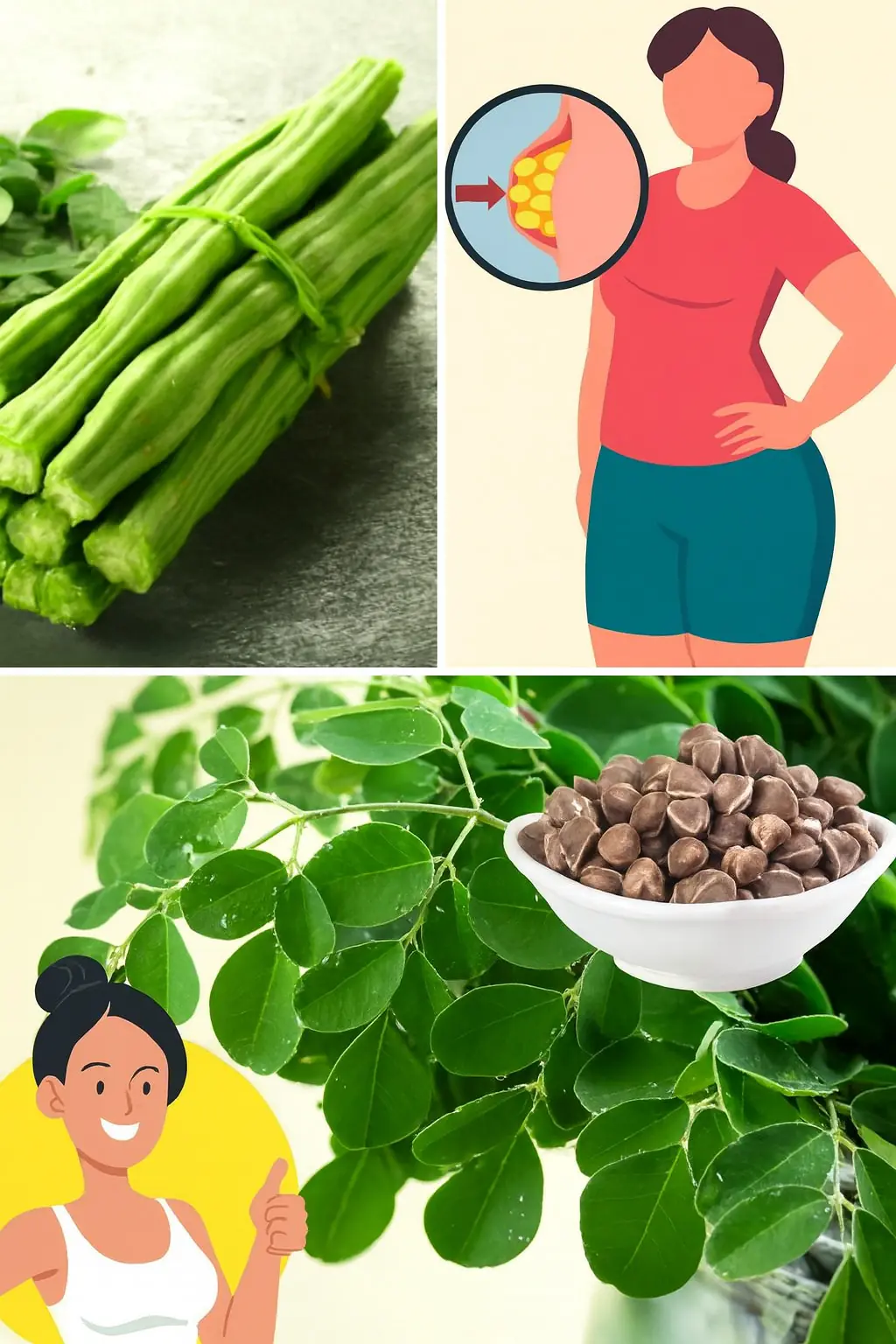
Moringa Unleashed: Discover the Secret Superfood That Can Revolutionize Your Health

Discover Grandma’s Secret: A Natural Remedy to Banish Varicose Veins

7 Teas That Stop Swollen Legs, Ankles, and Feet for Good

7 Powerful Ways Prosopis Juliflora Boosts Digestive and Heart Health
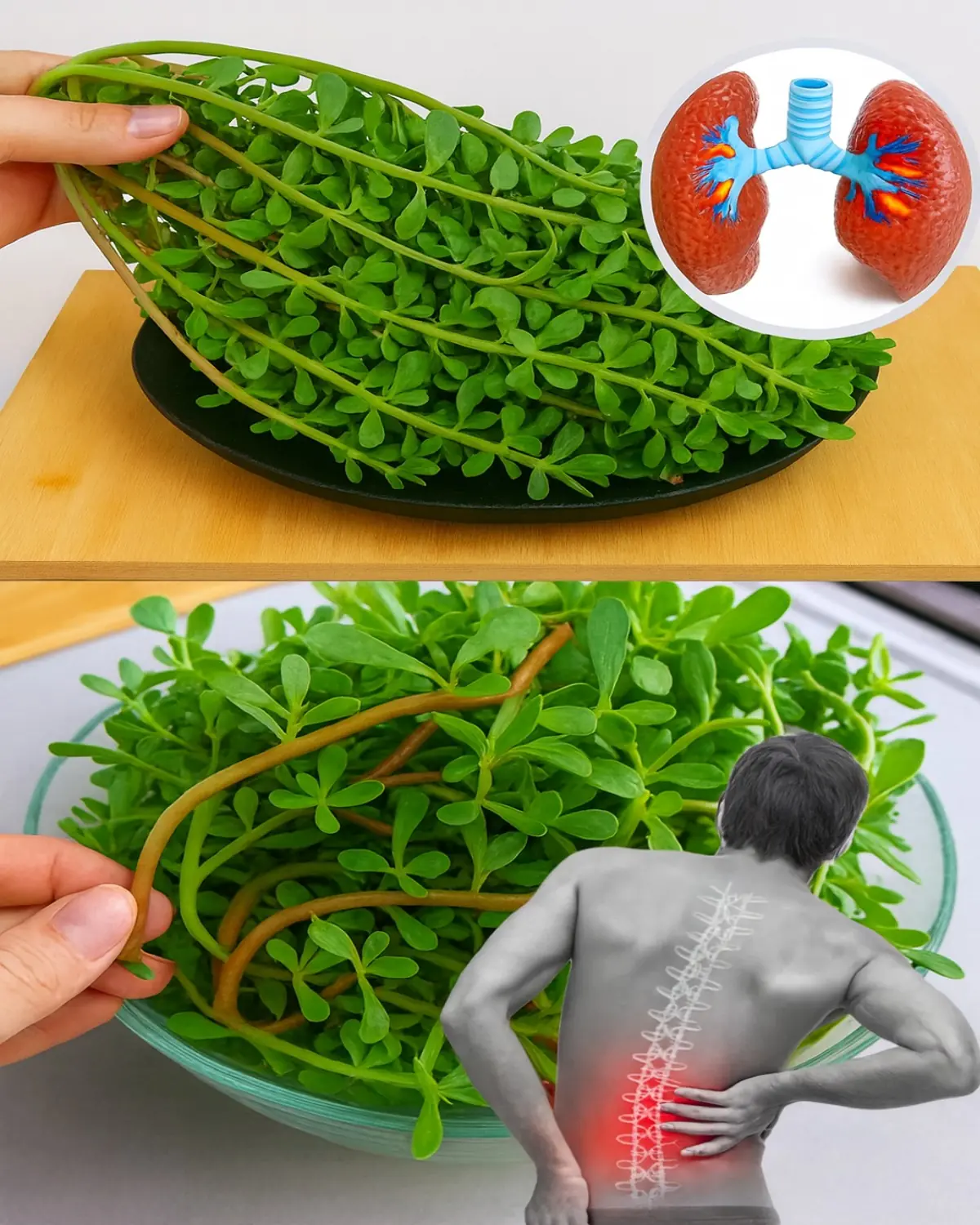
Purslane: A Natural Support for Lungs and Back Health

Indian Borage (Mexican Mint): A Herbal Drink for Eye Health
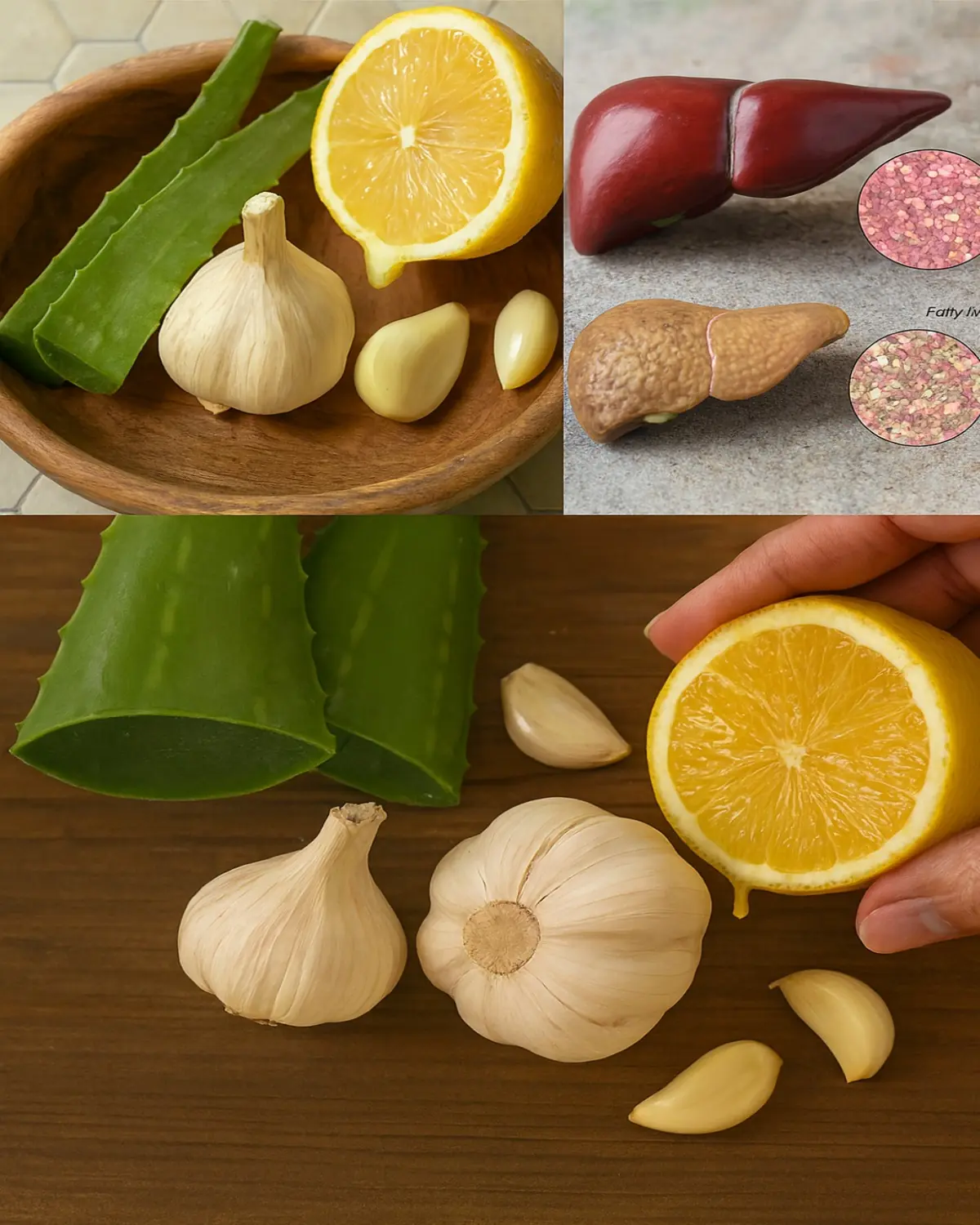
Aloe Vera Remedy: A Natural Support Against Bacteria and Fungi
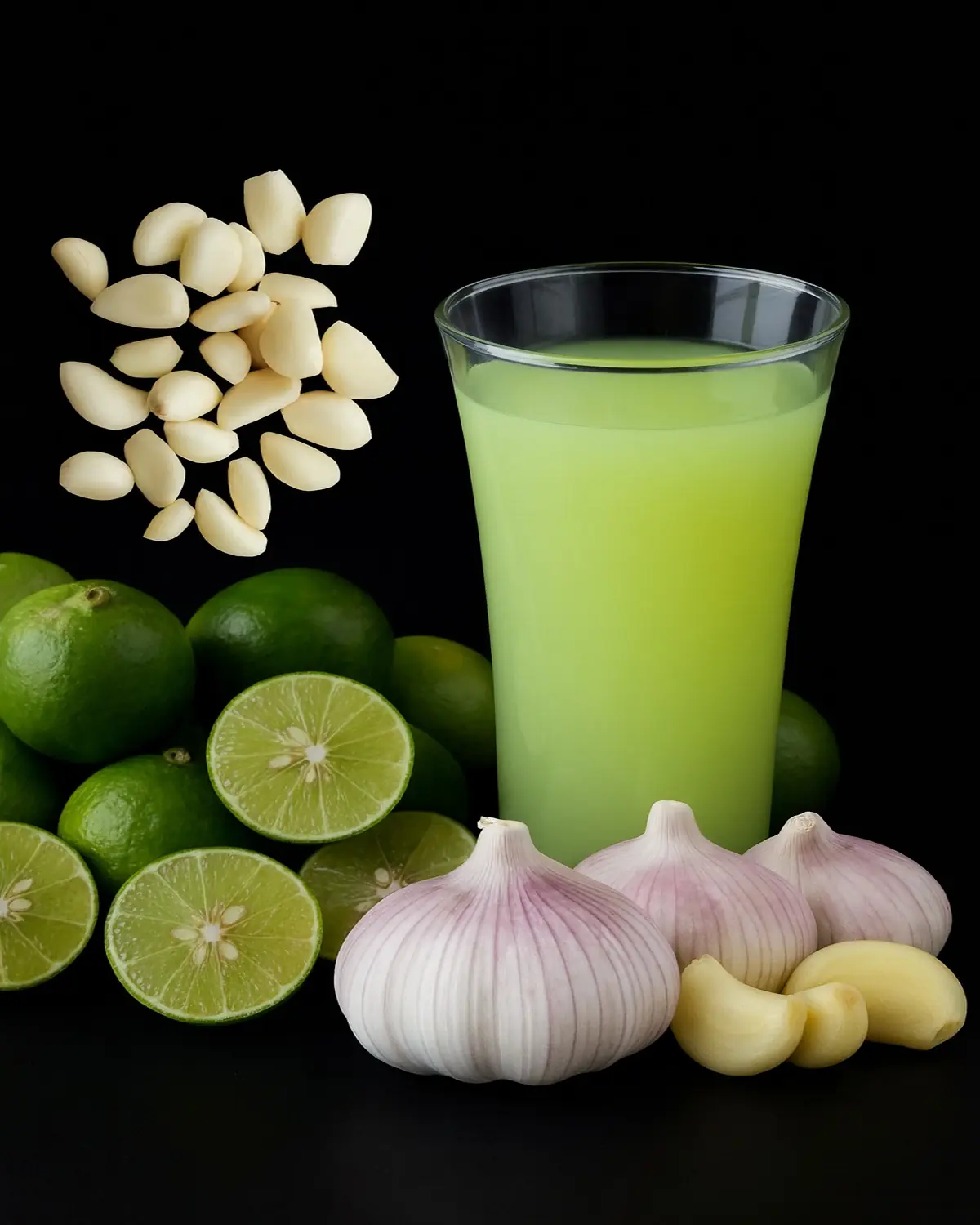
Ginger, Onion, Garlic, Lemon & Honey Mix: How to Make It and Why It Matters

Over 60? Drink These 3 Teas to Rebuild Muscle and Walk Strong Again

Knee Pain Relief Starts with THIS Powerful Drink (Must Try for Seniors!)

Seniors, Do This 1 Simple Leg Move to Reverse Hidden Health Problems

Stronger Than Garlic and Lemon: The Bay Leaf Foot Soak That Removes Toxins and Bacteria
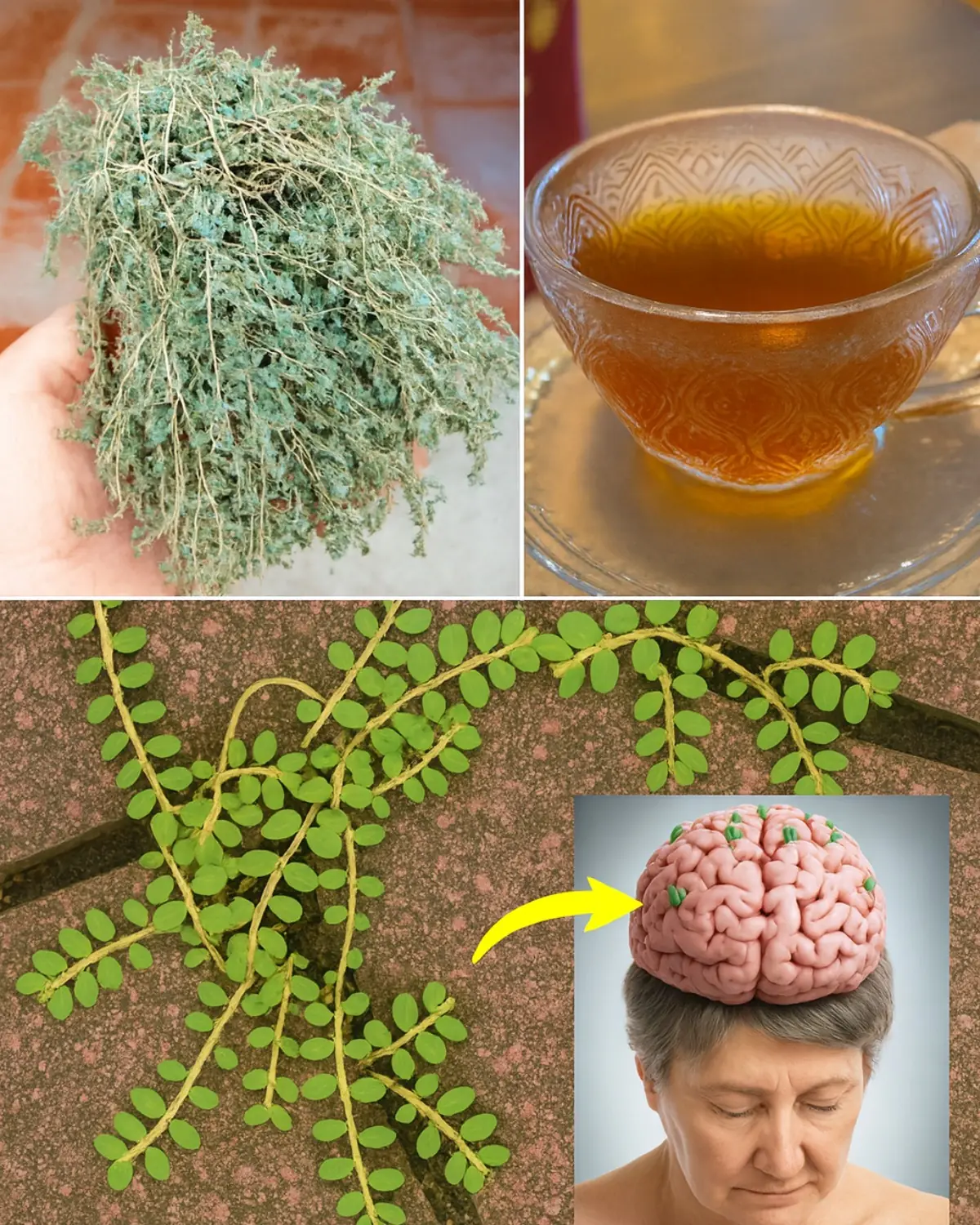
Herbal Tea from Stonebreaker Plant for Brain and Memory Support

I Applied Toothpaste and Vaseline on My Face – Here’s What Happened
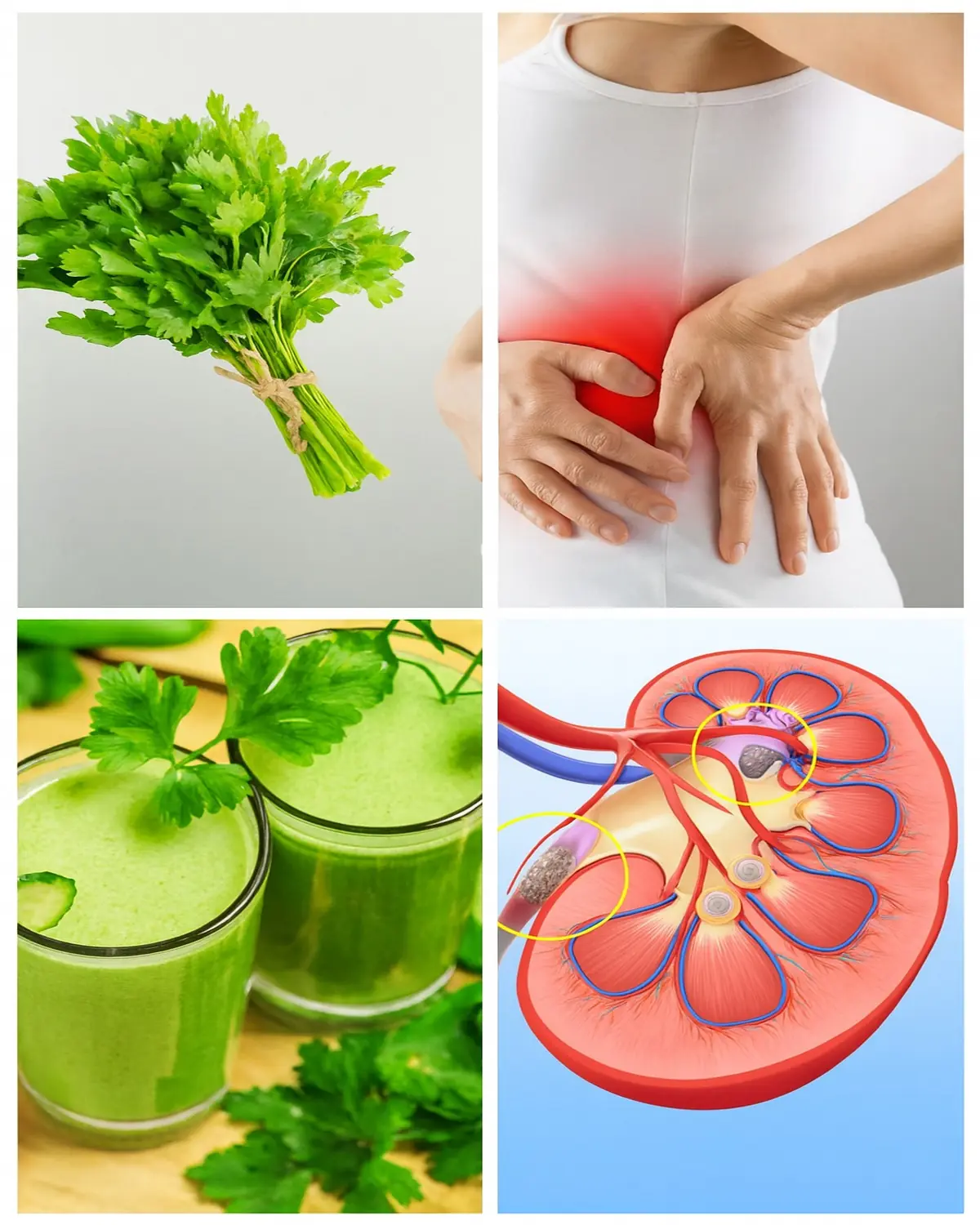
Parsley Juice for Kidney Cleansing and Stone Relief

All-in-One Master Tonic Shots: Fire Cider with Apple Cider Vinegar, Cinnamon, Clove, Lemon, Ginger, Turmeric, Cayenne & Honey
News Post

Unveil the Mystery: 10 Japanese Rice-Based Secrets for Radiant, Wrinkle-Free Skin

Unleash Your Inner Lion: The Ultimate Egg, Honey, and Coffee Elixir for Men’s Vitality

7 Silent Sleep Killers Sabotaging Seniors’ Health (And How to Fix Them Tonight)

Moringa Unleashed: Discover the Secret Superfood That Can Revolutionize Your Health

Discover Grandma’s Secret: A Natural Remedy to Banish Varicose Veins

A Boy’s Hand Shows Strange Signs After Playing in the Sand

7 Teas That Stop Swollen Legs, Ankles, and Feet for Good

7 Powerful Ways Prosopis Juliflora Boosts Digestive and Heart Health

Purslane: A Natural Support for Lungs and Back Health

Indian Borage (Mexican Mint): A Herbal Drink for Eye Health

Aloe Vera Remedy: A Natural Support Against Bacteria and Fungi

Ginger, Onion, Garlic, Lemon & Honey Mix: How to Make It and Why It Matters

Over 60? Drink These 3 Teas to Rebuild Muscle and Walk Strong Again

Knee Pain Relief Starts with THIS Powerful Drink (Must Try for Seniors!)

Seniors, Do This 1 Simple Leg Move to Reverse Hidden Health Problems

Stronger Than Garlic and Lemon: The Bay Leaf Foot Soak That Removes Toxins and Bacteria

Herbal Tea from Stonebreaker Plant for Brain and Memory Support

I Applied Toothpaste and Vaseline on My Face – Here’s What Happened
